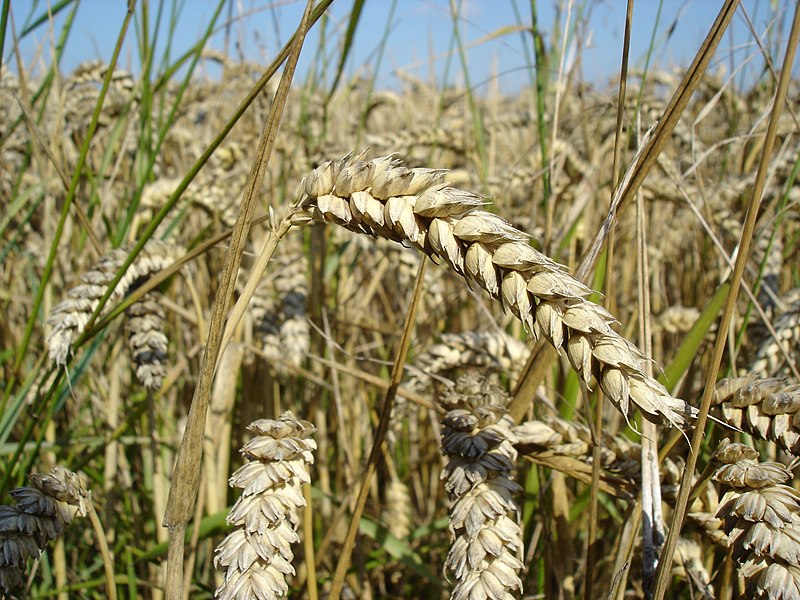 |
| Wheat photo via wikipedia |
Over at the Guardian, they're reporting on the finding of genetically-modified wheat in the US food system this past week:
The discovery of rogue genetically modified wheat in a farmer's field in Oregon shook global confidence in the safety of America's food supply on Friday.Yes, it's Monsanto. Yes, it's already in the food supply. And yes, we've seen this before with Starlink corn--GM corn designed to be used as animal feed that made it's way into the food chain without being approved for human consumption. I'm tempted to see a conspiracy in this--get it in the food chain, claim that means it is safe, get approval--but there's never a need for conspiracy when human stupidity is so powerful an actor. And there's no reason to think it isn't in the Canadian food supply--but you can bet CFIA won't be out looking for it.
Billions in food exports were potentially at stake following the disclosure by the US Department of Agriculture of the existence of the GM wheat plants.
The GM variant, developed by the agricultural giant Monsanto, has never been approved for human consumption.
The discovery in Oregon, about a decade after field trials ended in that state, raised concerns among the main buyers of America's wheat abroad, as well as an increasingly active GM movement at home.
The European Union advised member states on Friday to test some wheat shipments from the US. The EU imports more than 1.1m tonnes of wheat a year.
Asia was also shutting its doors to American wheat imports. South Korea, which last year imported half of its wheat from the US, cancelled imports, following Japan's lead. Thailand puts its ports on alert. China and the Philippines said they were closely watching the USDA's investigations into the GM escape.
"It's going to be a pretty serious blow to all wheat farmers. I would imagine probably the price of wheat is already going down some," said Fred Kirschenmann, a senior fellow at the Leopold Centre for Sustainable Agriculture at Iowa State University, who himself farms 2,600 acres of organic wheat.
"It is definitely going to have an impact because it is right at the time when there is increasing concern about GM and food so this is not going to be good news for the wheat farmers."
But the thing is, this affects trade and trade agreements. The EU doesn't allow GM wheat. Nor do a number of other countries. The threat of stopping wheat imports because of contamination by GM varieties will be a powerful motivator for both the US government and US farmers to ensure that GM wheat varieties are not allowed.
But GM wheat never gained a foothold because of widespread public resistance, and Monsanto did not pursue efforts for its commercial development.
However, the company conducted widespread testing of GM wheat in 16 states between 1998 and 2005. The last such test fields in Oregon were planted a decade ago in 2001, the USDA said.
Those decisions could now return to haunt the US, said Danielle Nierenberg, founder of The Food Tank. "We have spent a lot of time in the last few years putting China and other countries down for food safety issues, but we are messing with people's faith in the food system here," she said. "The US has a long history of claiming we have the safest and most abundant food system in the world and this undermines that." (from the Guardian article)
If we learned anything from the Percy Schmeiser case, it's that GM seed is quite willing to cross-pollinate with non-gmo varieties. And that, should such cross-pollination occur, Monsanto gets to claim that your seed as theirs. Which makes keeping seed-stock clean a real battle.
It is very depressing to say, but pressure from wheat importing countries will have far more affect on the question of GM foods than all the citizen action groups we can muster. Because democracy is no longer about citizens, it's reserved for dollars. Dollars count where people don't.
No comments:
Post a Comment